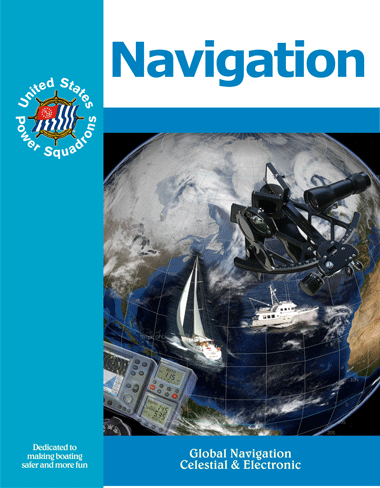ADVANCED GRADE COURSES
~ BOAT HANDLING | NAVIGATION ~
The advanced courses are generally held once a week over a ten-week period with one additional week for the exam. Most classes are typically 2 hours long, running from 1900 - 2100. Students are expected to complete homework assignments between classes.
BOAT HANDLING - (Formerly Seamanship)
This course covers your responsibilities as skipper, and getting your boat ready for launch. You’ll also learn boat handling and maneuvering skills that allow you to boat under various conditions in close quarters and on the open water.
-
Rules of the Road – A Practical Approach
-
Docking and Undocking – Slow-Speed Maneuvering
-
Boating with Confidence – Handling Your Boat Underway
-
Anchoring with Assurance – Don’t Get Carried Away
-
Emergencies on Board – Preparation for Handling Common Problems
-
Knots and Line Handling – The Knots You Need to Know
Course materials include a downloadable or printed student manual as well as a downloadable U.S. Coast Guard Navigation Rules and Regulations Handbook.

MARINE NAVIGATION (Piloting)
This course is the first of a two-part program studying inland and coastal navigation. Its focus is on the fundamentals of piloting - keeping track of a boat's movements, determining one's position at any time and laying out courses to a planned destination. Included are subjects such as:
-
Charts and their use
-
Aids to navigation
-
The mariner's compass
-
Variation and deviation of the compass
-
Plotting and steering courses
-
Dead reckoning
-
Plotting and labeling charts


ADVANCED MARINE NAVIGATION (Advanced Piloting)
This course is the final part of the inland and coastal navigation series. Its emphasis is on the use of modern electronic navigation systems and other advanced techniques for finding position. Among topics covered are:
-
Tides and currents and their effect on piloting
-
Finding position using bearings and angles
-
Simple use of the mariner's sextant
-
Electronic navigation - RADAR, LORAN, GPS, etc.

OFFSHORE NAVIGATION (Junior Navigation)
Junior Navigation is the first in a two-part program of study in offshore navigation. It is designed as a practical "how to" course. Subject matter includes:
-
Precise time determination
-
Use of the Nautical Almanac
-
Taking sextant sights of the sun, moon, planets and stars
-
Reducing sights to establish lines of position
-
Special charts and plotting sheets for offshore navigation
-
Offshore navigational routines for recreational craft

CELESTIAL NAVIGATION - Advanced Offshore Navigation
This course is the second part of the study of offshore navigation, further developing the student's understanding of celestial navigation theory. The course covers:
-
Additional sight-reduction techniques
-
Honing skills insight taking and positioning
-
Orderly methods for the navigator's day's work at sea
-
Navigating with minimal resources, as in a lifeboat

